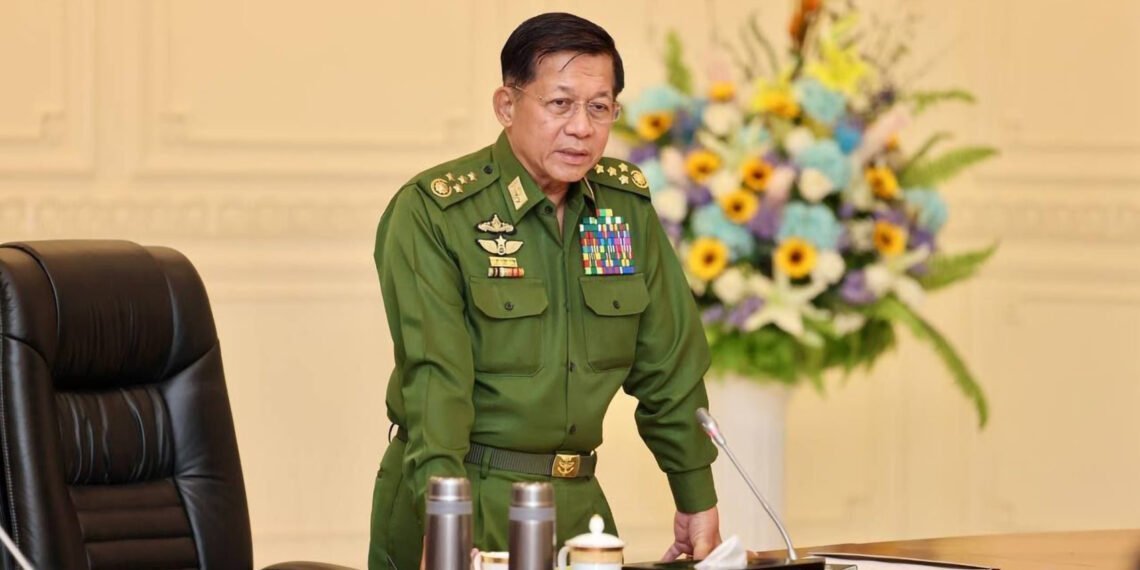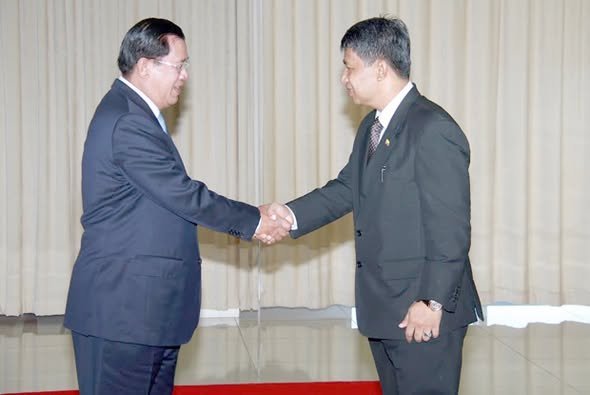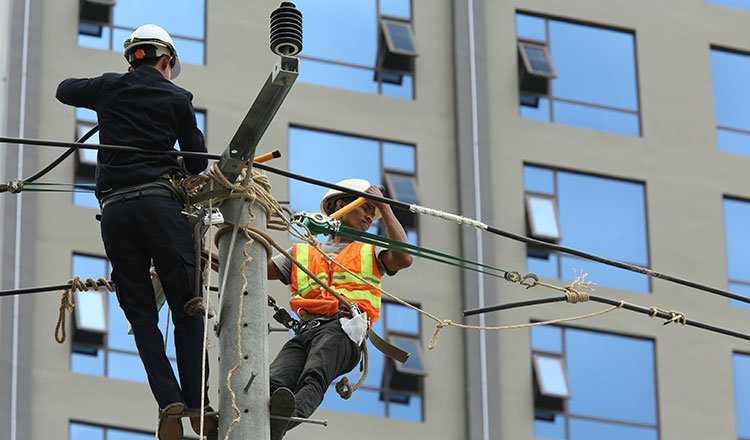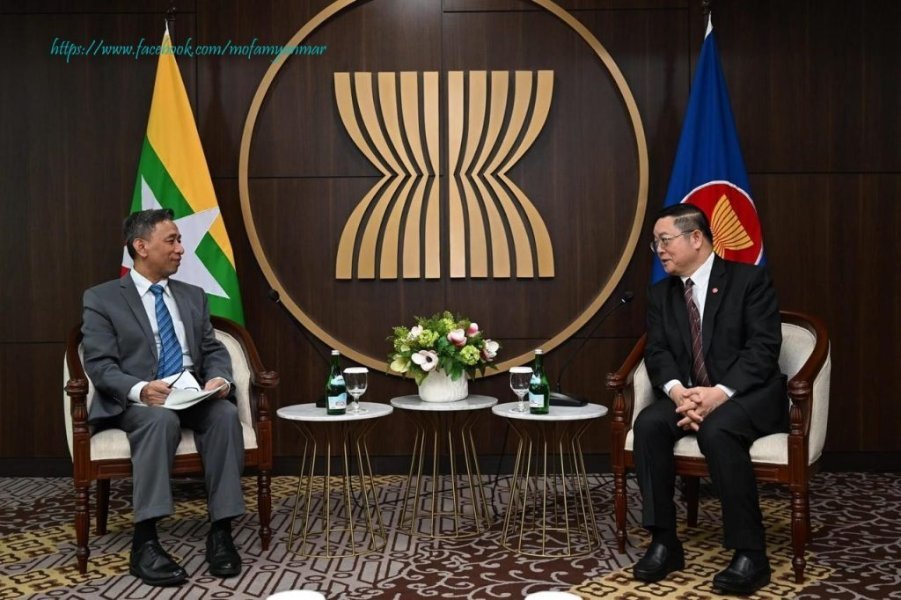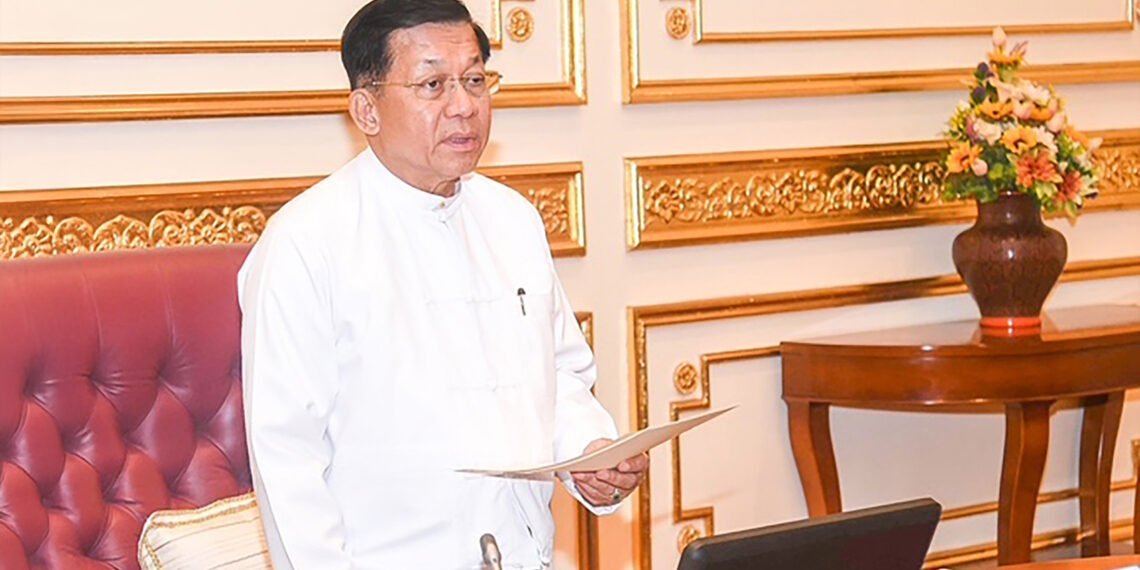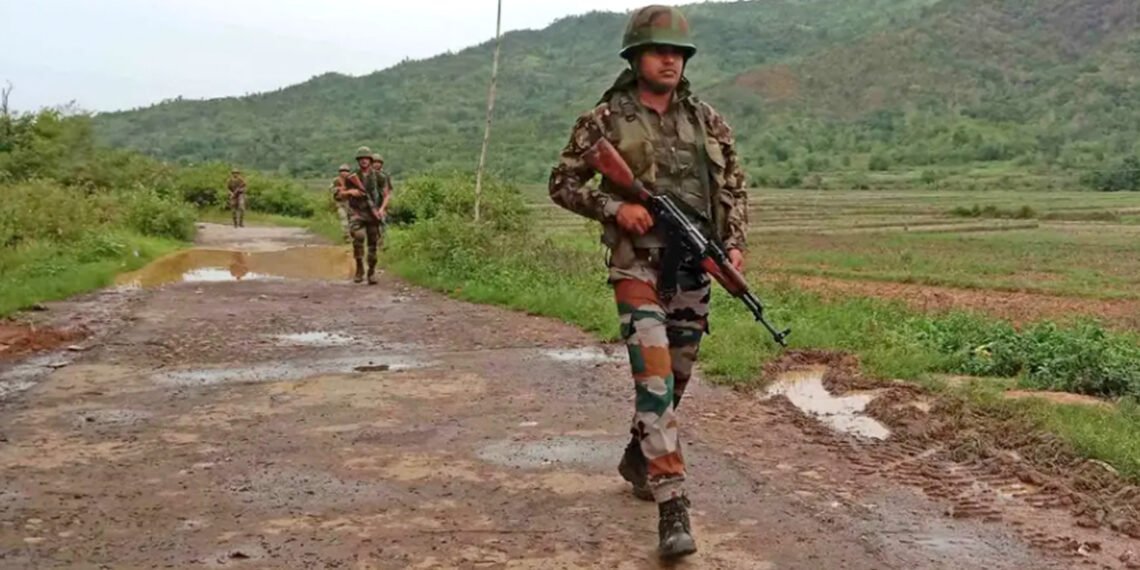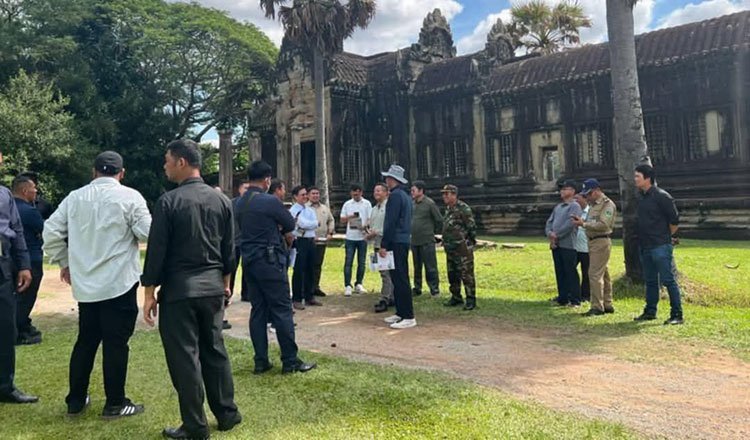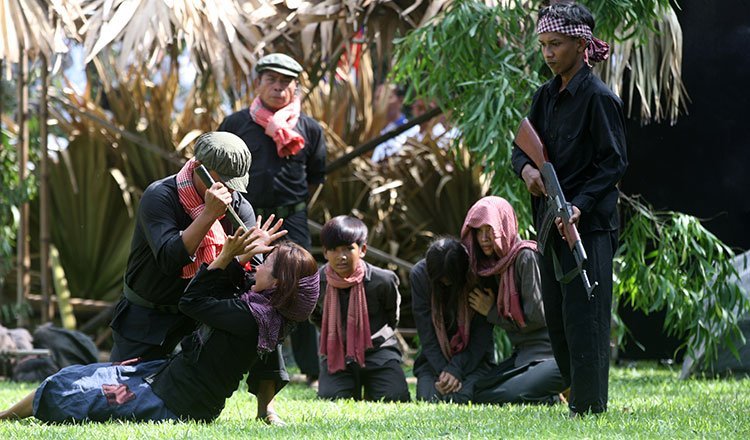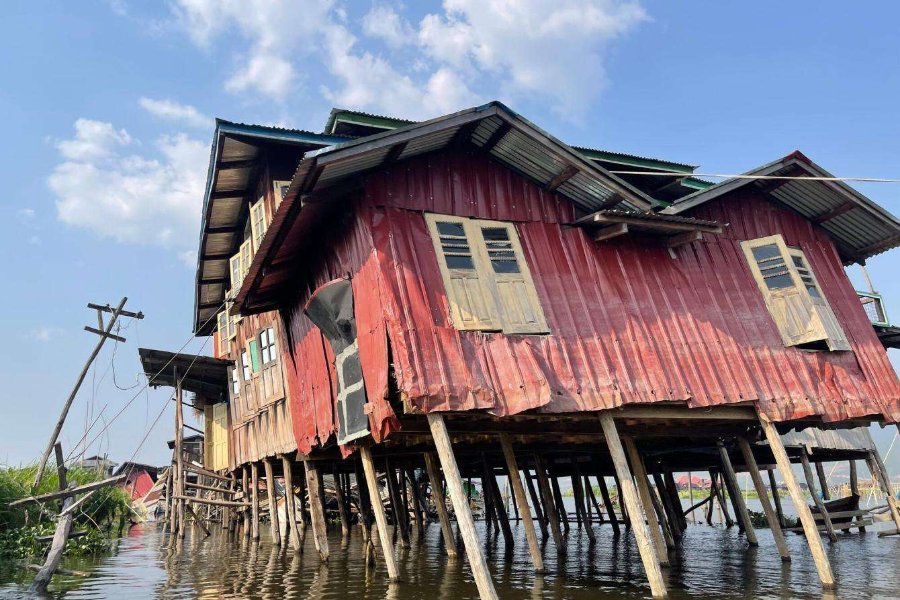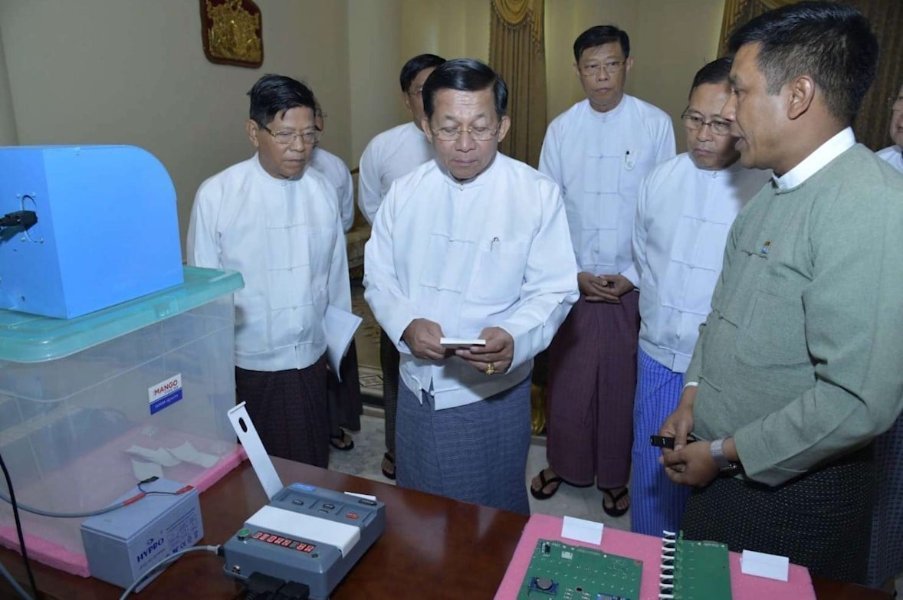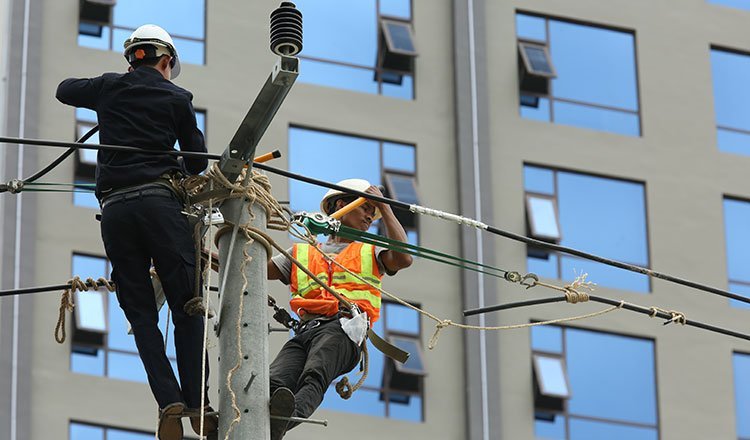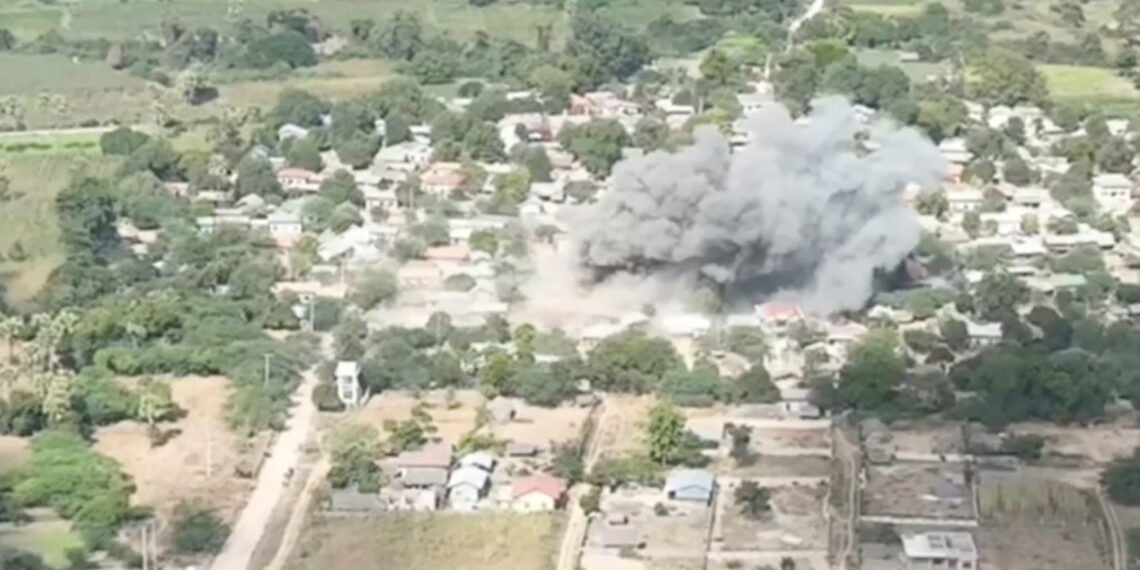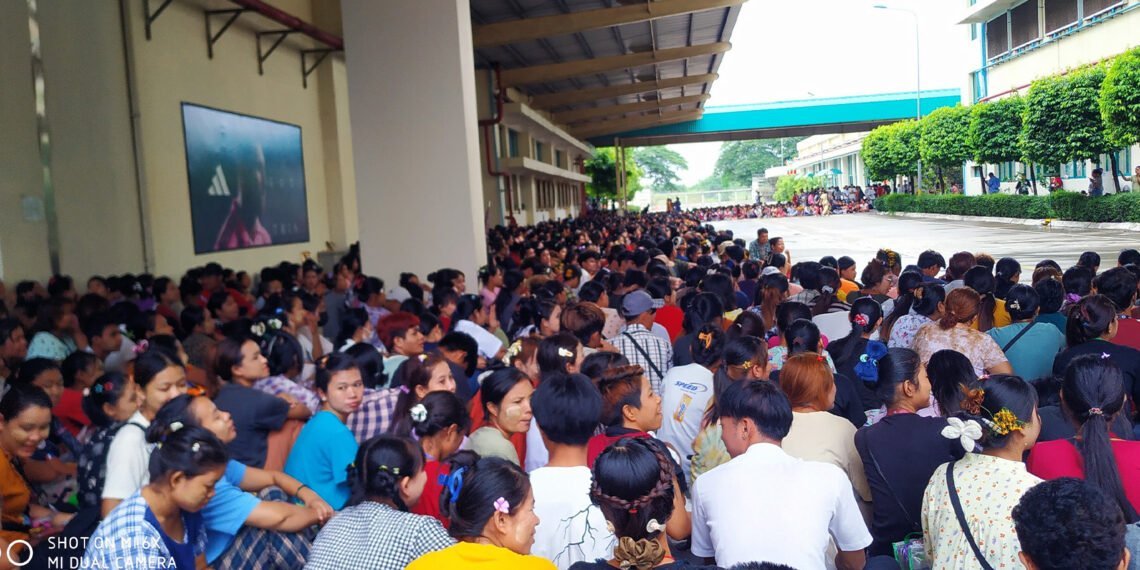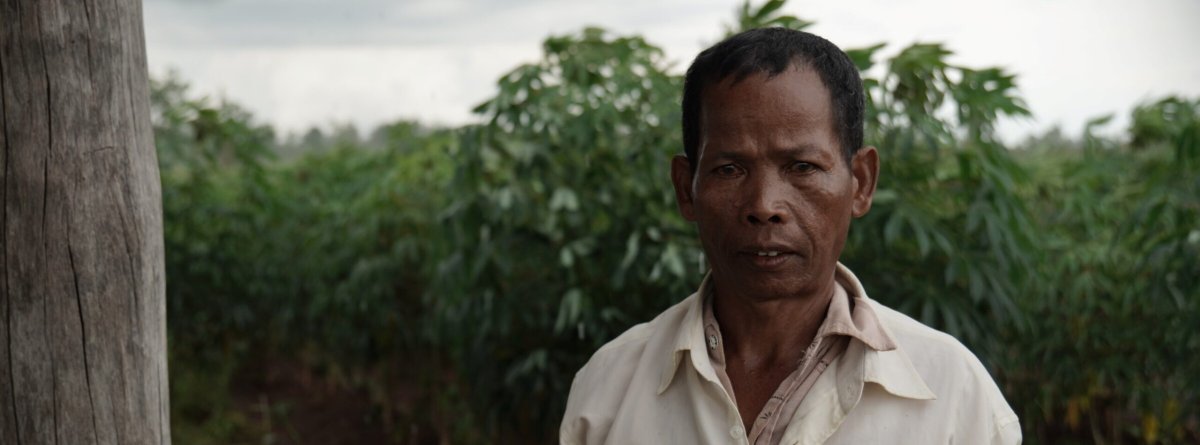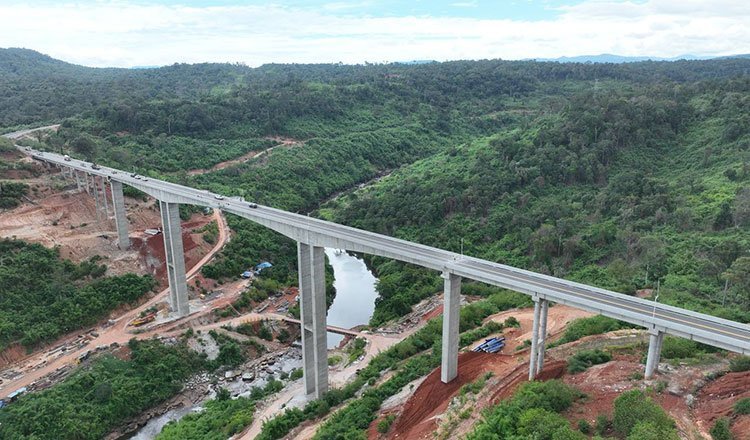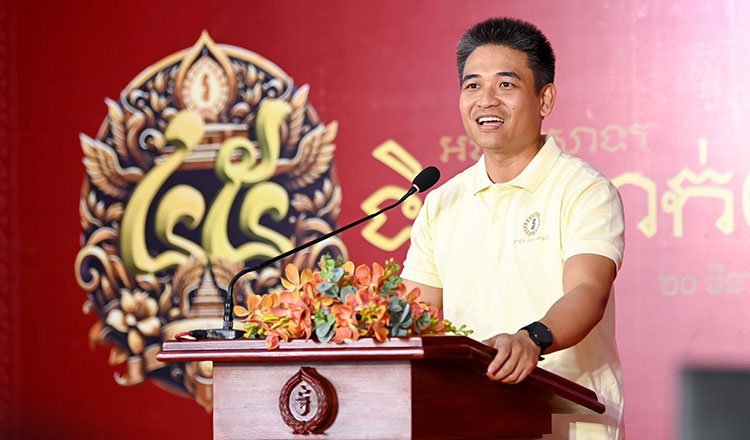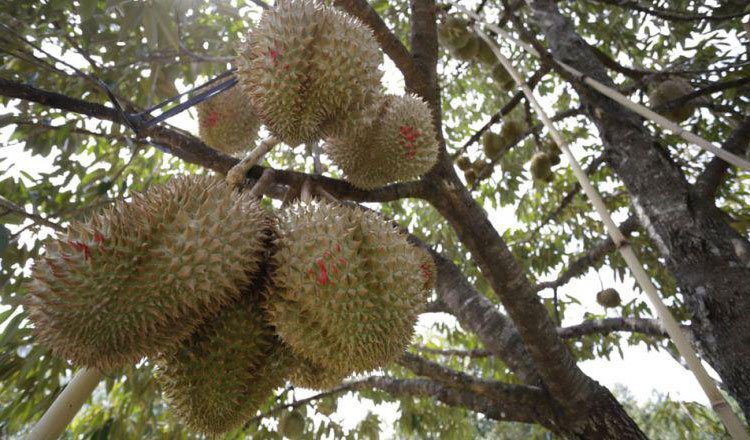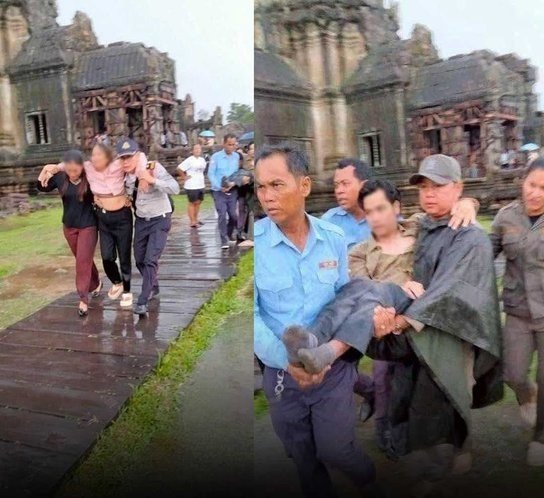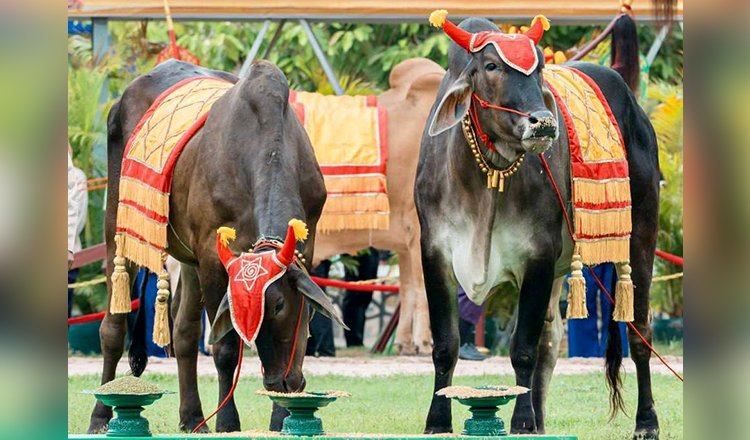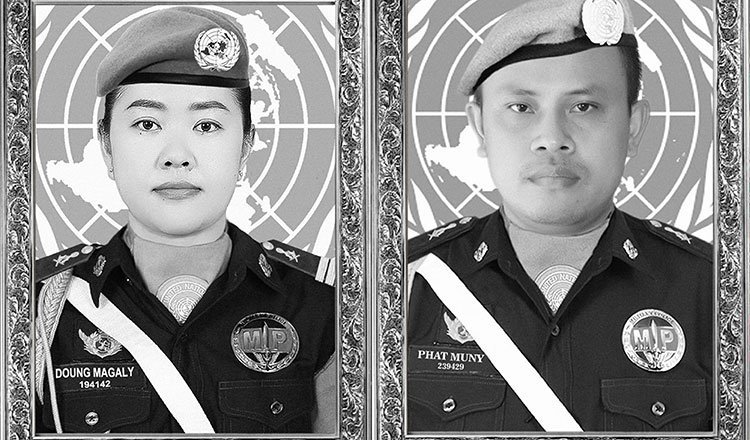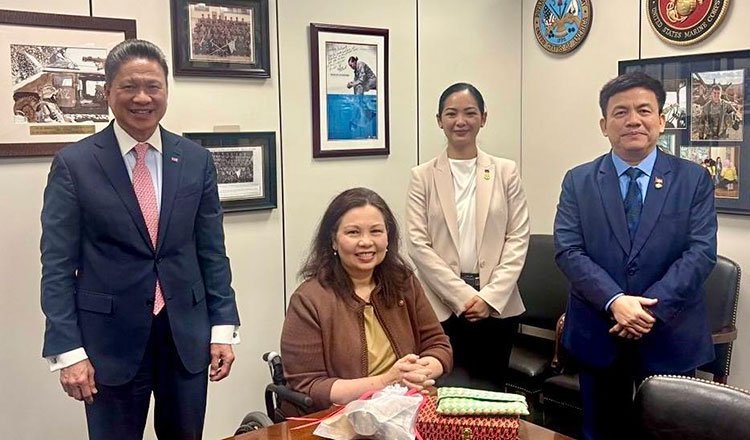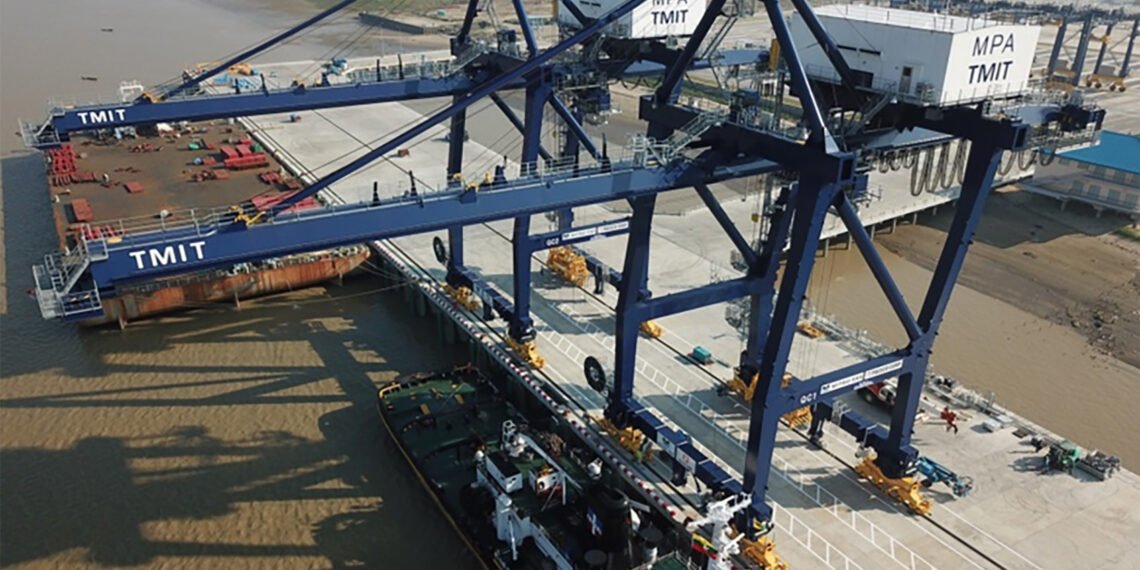-
Posts
15,817 -
Joined
-
Last visited
Content Type
Events
Forums
Downloads
Quizzes
Gallery
Blogs
Everything posted by geovalin
-
Min Aung Hlaing Malaysia’s Prime Minister Anwar Ibrahim has opened a rare window for peace in Myanmar, signalling the first potential direct contact between the military junta and the ousted civilian government since the 2021 coup. In a bold diplomatic move, Anwar met junta chief Min Aung Hlaing in Bangkok last month, followed the next day by online talks with the opposition National Unity Government (NUG), which includes allies of detained leader Aung San Suu Kyi. Both sides were reportedly aware of the separate engagements—marking a crucial softening of entrenched hostilities. Speaking in Putrajaya, Anwar said, “We do engage separately, but I think it's time for them to talk. The people in Myanmar have to decide for themselves.” His efforts, made in his capacity as ASEAN chair, aim to lay the foundation for a ceasefire and eventual reconciliation. The NUG, while open to dialogue, has set firm conditions: the military must exit politics, accept a new democratic constitution, and agree to a transitional justice framework. Though the junta has shown no signs of agreeing to such terms, Anwar’s initiative has rekindled hopes for progress. The push for dialogue gained momentum after a deadly earthquake in March. Humanitarian aid efforts required a temporary ceasefire, which Anwar used as an entry point for broader negotiations. Sources suggest the groundwork for talks was laid well before the disaster but accelerated as the junta sought legitimacy amid global isolation. Despite a formal ceasefire announcement, fighting continues—particularly in border areas where armed resistance groups have driven the military out. Over 3.5 million people have been displaced, and thousands killed since the coup. ASEAN’s long-stalled Five Point Consensus peace plan has failed to curb violence or bring the junta to the table. Anwar’s back-channel diplomacy, described as the bloc’s “first serious attempt at engagement,” is set to dominate next week’s ASEAN Summit in Kuala Lumpur. With the junta planning controversial elections in December, observers warn that only genuine dialogue can lend credibility to any political process. As one veteran Thai diplomat put it, “An election without dialogue offers no legitimacy.” -2025-05-23
-
Cho Tun Aung with Hun Sen A former Myanmar military major general and ex-ambassador was assassinated outside his Yangon home on Thursday, in a bold attack claimed by an urban guerrilla group opposing the country’s ruling junta. Cho Tun Aung, who once served as Myanmar’s ambassador to Cambodia and held a senior military post, was shot at close range around 9 a.m. in Mayangon township, according to a local official. The gunman fled the scene. The official, not authorised to speak publicly, described the killing as “a targeted act.” The Golden Valley Warriors, a self-declared resistance group, claimed responsibility for the assassination on Facebook. In their statement, they accused Cho Tun Aung of contributing to the junta’s “daily inhumane atrocities” by lecturing on internal security and counterterrorism at the National Defense College in Naypyitaw. They also noted his involvement with the military-aligned War Veterans Organization, which has reportedly helped mobilise militias against pro-democracy forces and ethnic insurgents. Since the military coup in 2021 that ousted Aung San Suu Kyi’s elected government, Myanmar has spiralled into widespread armed conflict. While much of the fighting rages in rural regions, targeted killings in major cities have increased. Retired officers, civil servants, and individuals suspected of aiding the junta have frequently been marked for assassination. This is not the first such killing in Yangon. In 2022, Brigadier General Ohn Thwin, another former ambassador and senior officer, was also shot dead at his home. Financial executives linked to the military have been similarly targeted, though responsibility is not always claimed. Thursday’s killing of Cho Tun Aung underscores the growing reach and boldness of resistance groups within Myanmar’s urban centres. It also highlights the ongoing volatility of a nation trapped in a violent struggle between military rulers and a diverse resistance movement pushing for democracy. -2025-05-23
-
KT Chor Sokunthea Cambodia has surpassed expectations by reaching over 95% household electrification, marking a major milestone in rural development—but issues of service quality and affordability still loom large. Electricité du Cambodge (EDC) and the Ministry of Mines and Energy celebrated the achievement this week at an event marking the 20th anniversary of the Rural Electrification Fund. Officials revealed that 99.15% of villages now have access to electricity, with 95.24% of households connected to the national grid—exceeding World Bank projections for 2030. “Even in remote or flood-prone areas where the national grid can't reach, solar power systems are helping us ensure universal village access,” said EDC’s Praing Chulasa. Energy Minister Keo Rottanak credited Cambodia’s post-war peace for enabling long-term infrastructure planning. “Without peace, there is no electricity, no investment,” he said, praising past and present leaders for prioritising the sector. Over the past two decades, Cambodia’s power generation has grown from 150 MW to 5,360 MW, with 3,600 MW of stable capacity. Yet despite the success in coverage, gaps remain in service reliability and cost. In areas like Phnom Penh’s Meanchey district and Spean Thmar, residents report frequent outages and high prices, especially where private operators manage the supply. “Sometimes there’s no power for half a day,” said Leng Sopheaktra, a small business owner. “We need cheaper, more reliable electricity.” The situation reflects broader structural challenges. According to Cambodia’s 2023 Energy Road Map, the country still faces issues in energy planning, environmental sustainability, and pricing. Electricity remains expensive for many, hindering competitiveness and growth. To keep tariffs affordable, the government allocated $150 million in subsidies to EDC last year. But the utility still forecast a $130 million loss—raising concerns about long-term financial stability. In response, EDC is launching a digital transformation project, backed by the EU and France’s AFD, to cut power losses, improve grid reliability, and integrate renewables. While the coverage milestone is commendable, Cambodia’s next task is clear: making electricity not just available, but dependable and affordable for all. -2025-05-22
- 1 reply
-
- 1
-

-
MME Cambodia’s gold mining industry has delivered a glittering start to 2025, generating $2.85 million in royalties for the government within the year’s first four months, according to the Ministry of Mines and Energy. The figures reflect a sector on the rise, following nearly $100 million in total non-tax revenues from mining in 2024. The ministry heralds the growth as a sign of long-term potential, both for boosting national income and attracting further investment. “Cambodia has the potential to continuously develop its mining sector by attracting investors and creating new sources of income,” said Mines and Energy Minister Keo Rottanak during a ceremony in Kampong Speu earlier this week. Gold remains the crown jewel of the country’s mineral wealth, with ten companies currently active in refining operations. Renaissance Minerals (Cambodia) Ltd leads the commercial effort through its Okvau Gold Project in Mondulkiri province, where it extracts and exports roughly 250 kg of gold ore per month for overseas refining. The government collected $7.93 million in gold royalties last year, suggesting 2025 may outpace expectations if current trends continue. While the ministry stopped short of disclosing the volume of ore exported so far this year, it confirmed Cambodia’s gold production remains concentrated in the northeast, particularly in Mondulkiri, where firms like Renaissance and Rong Cheng operate. In 2023, the country produced more than 12.5 tonnes of dore bars—semi-pure gold blocks—containing around 90 percent gold. With global demand for precious metals and construction materials still high, Prime Minister Hun Manet has urged officials to seek new export markets not only for gold, but also for other mineral and cement products. The government’s push to develop the sector marks a broader strategy to diversify the economy and tap into Cambodia’s rich underground resources—turning mineral wealth into long-term economic gain. -2025-05-22
-
government archive ASEAN will convene two special meetings next week to address Myanmar’s deepening civil conflict, Secretary-General Kao Kim Hourn announced Wednesday, marking the bloc’s most focused diplomatic effort on the crisis in years. Speaking from Jakarta, Kao told Reuters that the sessions—set to take place in Malaysia—will concentrate solely on Myanmar, with no other agenda items. The first meeting will involve Malaysia, Laos, and the Philippines, as current, former, and incoming ASEAN chairs, respectively. The second will gather ASEAN’s foreign ministers. “This is something new,” Kao said. “They will take no other issue.” ASEAN’s 2021 “Five Point Consensus” peace plan, which demands a cessation of violence and inclusive dialogue, has stalled amid continued fighting and widespread human rights abuses by Myanmar’s military. Junta leaders remain barred from ASEAN summits for their failure to cooperate. The conflict has displaced an estimated 3.5 million people since the military ousted the elected government of Aung San Suu Kyi in a 2021 coup. Myanmar, once seen as an emerging democracy, has since descended into chaos, with ethnic minority forces and pro-democracy groups waging a growing rebellion. Despite mounting criticism of ASEAN’s inaction, Kao defended the bloc’s approach, calling the consensus “beautiful” and insisting that progress will be slow but possible. “It may take time. We all are too impatient,” he said. He declined to comment directly on recent military airstrikes reported during a supposed post-earthquake ceasefire in March, saying it was unclear who broke the truce. Beyond Myanmar, Kao reiterated ASEAN’s aim to finalise a long-delayed code of conduct with China for the contested South China Sea by 2026, and confirmed East Timor’s likely accession to the bloc later this year. While few expect next week’s talks to deliver a breakthrough, ASEAN’s decision to dedicate exclusive sessions to Myanmar reflects growing concern that inaction may only prolong one of Southeast Asia’s most intractable crises. -2025-05-22
-
CJ In a major escalation of the conflict in northern Myanmar, the Kachin Independence Army (KIA) claims to have shot down two military helicopters on 20 May in Bhamo Township, Kachin State. Colonel Naw Bu, spokesperson for the KIA, confirmed to Mizzima that the aircraft were part of a three-helicopter convoy transporting reinforcements to the junta’s Military Operation Command 21 base. One chopper reportedly crashed near Shwegu, while the second was forced into an emergency landing. The third managed to escape in the direction of Myitkyina. “The shootdown happened around 1pm near the MOC 21 base,” said Naw Bu. “They were targeted before landing, disrupting the junta’s ground operations.” The incident marks a significant tactical success for the KIA, which has intensified operations against Myanmar’s military since the 2021 coup. It also underscores the increasing vulnerability of junta aircraft in contested zones like Kachin, where ethnic armed groups maintain strongholds. State media acknowledged the crash but attributed it to a technical fault, claiming the helicopter went down after delivering supplies to frontline troops. Recovery operations are reportedly ongoing. However, independent media outlets and ethnic resistance groups say otherwise. Both Myanmar Now and Myitkyina News Journal cited the KIA’s account, reporting that rebel fire brought down the helicopters during their mission. This latest strike brings the total number of junta aircraft downed or lost since the coup to at least 16, according to independent tallies. The KIA alone is believed to have taken down five of them. With both narratives clashing, one thing is clear: the skies over Kachin are no longer safe for the junta. As Myanmar’s military scrambles to maintain control, resistance forces are steadily growing in strength—and in firepower. -2025-05-22
-
GNLM With just months to go before Myanmar’s long-delayed general election, registered political parties are voicing deep concern over what’s shaping up to be a widespread public boycott — a silent but potent act of defiance against military rule. Speaking at a press conference in Yangon last week, People’s Pioneer Party chairwoman Thet Thet Khaing urged citizens to vote in December’s poll “so that it succeeds”. But many fear the election is already doomed to fail in the eyes of the people, who remain staunchly opposed to the military junta that seized power in 2021 and has ruled through violence and repression ever since. The regime, which has struggled to maintain control beyond key cities like Mandalay and Naypyitaw, admitted that its pre-election census missed 19 million people — over a third of the population. Opposition parties and international observers see this as just one of many signs the planned vote is neither credible nor viable. Despite promising elections since the coup, the junta has offered few details. The vote is now scheduled in phases through December and January, though the military has yet to specify electoral laws or constituencies. The regime dissolved the National League for Democracy (NLD) — winners of the last legitimate election — and more than 40 other parties. Now, of the 77 parties that have registered under the junta, just 54 have been approved. Most are either new or minor parties that performed poorly in 2020. “Even one vote is enough to legitimise the election,” said Sai Aik Pao, head of the Shan and Nationalities Democratic Party, echoing the junta’s thin legal justification. Others, like Than Than Nu of the Democratic Party, cautiously support the process but admit public participation may be dangerously low. Adding to the uncertainty is Myanmar’s deepening humanitarian crisis. Earthquake-hit regions remain in disarray, and the military’s recent airstrike on a Sagaing school — which killed 22 children — has only fuelled public fury. Critics warn that the vote will spark further violence. “This election will invite bloodshed,” said U Aung Moe Zaw of the Democratic Party for a New Society. “Everyone knows it won’t solve anything — but the parties pretend otherwise.” As fighting escalates and faith in the process fades, Myanmar’s election risks becoming not a path to peace, but a powder keg. -2025-05-21
- 1 reply
-
- 1
-

-
PTI Tensions are rising along the India–Myanmar border after ten Myanmar resistance fighters were killed by Indian paramilitary forces in Manipur last week — a move that’s sparked outrage across the border and raised questions about cross-border rules of engagement. India’s government has labelled the deceased as “armed extremists” involved in insurgent activity, claiming the Assam Rifles — a paramilitary unit under the Indian Army — acted in self-defence after being fired upon near New Samtal village in Manipur’s restive Chandel district. But sources in Myanmar tell a different story. The men, they say, were members of the People’s Defense Team (PDT) from Tamu Township in Sagaing Region — part of the resistance movement fighting Myanmar’s military junta. According to residents, Indian forces fired across the border after spotting a PDT outpost visible from Indian territory. “They’d never crossed into India,” said one fighter. “The killings happened on Myanmar soil. They were resistance fighters, not criminals.” Photos shared by Myanmar sources allegedly show the bodies wrapped in tarpaulin, bearing gunshot wounds and facial injuries. The Indian military confirmed the recovery of weapons — including AK-47s, an M4 rifle, and a grenade launcher — but has not released the names or nationalities of the dead. The bodies were handed over to Myanmar resistance fighters on 16 May. In response, the country’s parallel National Unity Government (NUG), which opposes the junta, said it was seeking clarification from Indian authorities and urged an investigation. “This incident has shocked many,” said a PDT member. “India is a democracy. It should not side with a military dictatorship.” The killings have stirred ethnic and political tensions in the region, where clashes between Myanmar resistance forces and junta troops — including ethnic Shanni and Meitei units — have intensified in recent months. India, which has long walked a diplomatic tightrope with Myanmar, now finds itself in a precarious position — accused of violating sovereignty, and potentially undermining its image as a democratic ally in the region. Whether this incident will escalate or be quietly buried remains to be seen. -2025-05-21
-
- 2
-

-

Angkor Temples to Get Lightning Shields After Deadly Strike
geovalin posted a topic in Cambodia News
Heritage protection PD After a tragic lightning strike at Angkor Wat left three dead and dozens injured, Cambodian authorities have announced plans to bolster protection across the ancient site — with a veritable forest of lightning rods soon to rise among the stone towers. Deputy Prime Minister and Minister of Defence, General Tea Seiha, who now seemingly doubles as Cambodia’s chief weatherproofing inspector, visited the Angkor Archaeological Park on 17 May. Accompanied by a task force, the general strolled through the temple complex to assess where additional lightning rods should be installed — presumably while glancing nervously at the sky. According to officials, many rods are already in place, but coverage remains incomplete — notably along tourist walkways where visitors tend to linger, and, tragically, where the lightning struck last week. The storm, which hit just before 5 p.m. on Friday, claimed the lives of local photographer Dop Srop and two female tourists. Their deaths have sent ripples through Cambodia’s tourism sector, which is only just regaining its footing post-pandemic. The response has been swift, if slightly belated. The Apsara National Authority (ANA), which oversees the park, and local engineers have now prioritised the installation of additional protection at high-footfall temples. So yes, Angkor’s 12th-century marvels will soon be sporting 21st-century accessories — not quite the restoration work the original builders had in mind. Yet, curiously, no official statement has been issued by either the ANA or the central government — though one suspects the silence is less strategic and more the bureaucratic equivalent of being caught in the rain without an umbrella. Meanwhile, humanitarian support has arrived for the victims’ families. The Cambodian Red Cross delivered aid to Srop’s relatives, including rice, krama scarves, a box of noodles, and five million Riel — practical comforts for an event utterly lacking in consolation. As lightning and limestone continue their uneasy dance, Cambodia’s cultural guardians are racing against the clouds. Angkor’s stones have stood for centuries. Let’s hope the new rods will help ensure its visitors can, too. -2025-05-21 -
KT Chor Kunthea Cambodia today commemorated one of the darkest chapters in its history — 50 years since the Khmer Rouge began its brutal regime that led to the deaths of around 1.7 million people. Thousands gathered at Choeung Ek, a former “killing field” near Phnom Penh, to honour victims of the genocide that unfolded between 1975 and 1979. Student performers staged re-enactments of atrocities once carried out on the site, now a stark memorial marked by mass graves and skull-lined shrines. “It was extremely cruel and barbaric,” said Nhem Sovann, 71, who lost six family members to the regime and was herself forced into gruelling farm labour. “When I come here, it reminds me. I will never forget.” The Khmer Rouge, led by Pol Pot, seized power on 17 April 1975 and emptied cities, pushing millions into the countryside to work in collective farms under catastrophic conditions. What followed was a reign of starvation, torture, and mass executions — wiping out nearly a quarter of the population. For younger Cambodians, the Day of Remembrance — previously known as the National Day of Hatred — serves as both a memorial and a lesson. Art student Pen Kunthea, 23, whose uncle died during the regime, said she was haunted by what she learned. “I feel scared,” she said. “I don’t want that regime to happen again.” The Khmer Rouge were ousted in 1979 by Vietnamese forces, but it took nearly two more decades before the group was fully dismantled. Senior leaders have since been convicted of crimes against humanity, though many survivors say justice came too late. Prime Minister Hun Manet, speaking on Tuesday, urged the country to safeguard the peace it now enjoys. “We must not forget this bitter past,” he said, adding that remembrance is vital to ensuring history is never repeated. Half a century on, the scars of the Khmer Rouge era remain etched into Cambodia’s national identity — a reminder of how swiftly a nation can descend into darkness, and how crucial it is to remember. -2025-05-21
-
© Zar Pann Phyu More than a month after a powerful 7.7 magnitude earthquake struck Myanmar on March 28, communities in Inle Lake, southern Shan State, are still grappling with widespread destruction and loss. The lake’s traditional stilt-house villages were especially vulnerable—up to 90% of homes in some areas were damaged or destroyed. Many residents, like Ma Thazin, describe terrifying experiences as their homes collapsed into the water. Some families now live in tents, boats, or crowded shelters on dry land. Access to clean water, housing materials, and boats remains limited, and with the rainy season approaching, the risk of floods adds further urgency to rebuilding efforts. Ma Thazin and her husband barely escaped their collapsing home and now live apart from other family members due to overcrowding and safety concerns. The high cost of reconstruction—around $14,000–$19,000 USD per wooden house—and rising prices for boats and materials have made recovery especially difficult. The emotional toll has been immense. “We do not know how to start over again,” said Ma Thazin, who has faced multiple disasters in the past three years. Daw May Lwin, another Inle Lake resident, was thrown into the water when a tower collapsed while she was washing clothes. She struggled to escape through thick mud and debris but survived. Her 89-year-old paralyzed mother was trapped alone during the quake. Their two-story house was badly damaged, and their floating vegetable farm—vital to their livelihood—was destroyed. The family now lives with relatives in a damaged but reinforced house. Many villagers remain traumatized, suffering from insomnia, anxiety, and physical ailments. “I couldn’t speak or eat properly for 20 days,” Daw May Lwin shared. She now cares for her mother full-time, unable to restart farming. Doctors Without Borders (MSF) is supporting four villages around the lake, distributing bamboo, wood, nails, and other essentials to help build temporary shelters. Despite these efforts, the needs remain urgent, especially as communities brace for monsoon season. For those who have lost homes, farms, and family unity, the path to recovery remains uncertain. -2025-05-20
-
- 1
-

-
Myanmar’s military regime is expected to form an “interim government” in July, ahead of long-delayed general elections tentatively scheduled to begin in December, a source in Naypyidaw has revealed. The move would coincide with the expiry of the current state of emergency on 31 July, which has been extended repeatedly since the junta seized power in February 2021. Though it remains unclear whether another extension will follow, insiders suggest the junta is likely to install a new governing structure in a bid to pave the way for elections. According to the source, who spoke to Mizzima on condition of anonymity, discussions within the ruling National Defense and Security Council (NDSC) point to a shift toward a more “civilian-looking” administration, though one still firmly under military control. At a meeting of the ruling Military Council in March, junta chief Min Aung Hlaing confirmed that elections would be held in four phases across December 2025 and January 2026. It is widely expected that the formation of an interim government will serve to bolster the regime’s legitimacy ahead of that timeline. Political analyst Than Soe Naing said a partial civilian façade could emerge. “Min Aung Hlaing may appoint others as president or prime minister, while retaining his role as Commander-in-Chief,” he told Mizzima. Currently, Min Aung Hlaing holds the titles of Prime Minister and Chairman of the State Administration Council, and assumed the role of acting president in July 2024 following the ill health of then-acting president Myint Swe. The junta continues to operate under the 2008 Constitution, which allows the military considerable influence through the NDSC. However, since the 2021 coup, most civilian figures — including elected President Win Myint and the NLD leadership — remain detained or in exile. Meanwhile, the parallel National Unity Government (NUG), which opposes the junta and includes deposed lawmakers, continues to call for a return to democracy and international recognition. Though the proposed interim government may present itself as a step towards elections, critics view it as a manoeuvre to entrench military rule under a more acceptable guise — while armed conflict and political repression persist across the country. -2025-05-20
-
KT - Chor Sokunthea Cambodia has surpassed global expectations by reaching over 95% household electrification, with nearly every village now connected to power — years ahead of World Bank projections. But as access grows, questions remain over the quality and affordability of service. The announcement came during a ceremony marking the 20th anniversary of the Rural Electrification Fund, where Electricité du Cambodge (EDC) officials celebrated the leap from just 10% electrification in 2000 to over 95% today. "Even in flood-prone areas, solar systems are ensuring electricity access," said EDC’s Praing Chulasa. Minister of Mines and Energy Keo Rottanak credited Cambodia’s progress to decades of peace and political stability. He praised the leadership of former Prime Minister Hun Sen and current PM Hun Manet for enabling long-term planning. Power generation has expanded 25-fold, reaching 5,360 megawatts, of which 3,600 MW is stable and continuous. However, beneath the milestone lies a more complex picture. While EDC touts nearly universal coverage, residents in areas like Meanchey district and parts of Pursat report frequent outages and high electricity prices. Some zones still rely on private operators, whose service is often patchy and expensive. “Sometimes there’s no power for half a day,” said Leng Sopheaktra, a small business owner in Phnom Penh. “We need affordable, reliable electricity — not just access.” The government is working to address these issues. A $150 million subsidy was allocated in 2023 to keep tariffs stable, though EDC still posted a $130 million loss. To modernise the grid and improve efficiency, EDC has launched a digital transformation with backing from France’s AFD and the EU. Goals include cutting energy loss and integrating more renewable sources. The broader challenges remain significant: rising demand, weak planning capacity, and financial strain on the state utility. While Cambodia's electrification journey is a clear success story, ensuring reliable, equitable, and sustainable energy for all Cambodians is the next chapter yet to be written. -2025-05-20
-
MoT Ruili Airlines has restarted its weekly direct flights between Wuxi, China and Cambodia’s coastal Preah Sihanouk province, marking a major step forward for post-pandemic tourism recovery. The first flight landed on Sunday at Preah Sihanouk International Airport, carrying 126 Chinese tourists. Greeted with a traditional Chhay Yam dance and a welcome ceremony led by local authorities, the visitors were the first to arrive on this revived route since it was halted due to Covid-19. Cambodia’s Ministry of Tourism hailed the move as a significant boost to both the national economy and diplomatic ties. “This is an important step for the country’s tourism and economy,” said Tourism Minister Huot Hak, noting the potential benefits for both leisure and business travellers. China has emerged as Cambodia’s third-largest source of foreign visitors, following Thailand and Vietnam. In 2024, nearly 850,000 Chinese tourists visited the Kingdom — a 55% rise from the previous year. Authorities are optimistic that figure will top one million in 2025, helped by strong bilateral relations and ongoing promotional efforts under the ‘Year of Tourism’ partnership. Cambodia Airports, which operates the Sihanoukville hub, described the resumption as a milestone in restoring air links. The Wuxi–Sihanoukville route is serviced by a Boeing 737-800 and is expected to enhance regional accessibility. Chinese Ambassador Wang Wenbin also welcomed the development, calling it beneficial for both tourism and cross-border business. As Cambodia continues positioning itself as a rising destination in Southeast Asia, the revival of direct flights is seen as a key step towards reinvigorating its coastal tourism hotspots — with Sihanoukville, once quiet during the pandemic, now firmly back on the map. -2025-05-20
-
Natogyi forces Myanmar’s military junta has been forced to abandon a key station on the China-backed oil and gas pipeline in Mandalay Region after a wave of coordinated resistance attacks, in a major escalation of anti-regime operations targeting strategic infrastructure. On Thursday, resistance fighters launched simultaneous assaults on junta positions guarding the pipeline in Natogyi, Taung Tha, Myingyan and Ngazun townships. The most significant clash took place at an off-take station near Natogyi, where around 80 regime troops were stationed. Several soldiers were killed and one detained, while resistance forces suffered at least one casualty, according to local sources. The junta deployed Chinese-made Y12 aircraft and fighter jets to defend the area, forcing the resistance to temporarily retreat. However, when fighters returned on Friday, the base had been deserted, with two bodies reportedly left behind. “The station was abandoned. It’s a major blow to the junta’s control of the pipeline,” a resident told local media. The Chinese pipeline network, which channels oil and gas from the Bay of Bengal through Myanmar into China’s Yunnan province, is one of Beijing’s most valuable energy lifelines. Its security has become increasingly fragile amid Myanmar’s intensifying civil conflict. Resistance forces also attacked the nearby Wetlu police station, prompting regime airstrikes. Though they retreated initially, resistance groups returned the next day to resume assaults. Additional clashes in Myingyan Township resulted in the deaths of six resistance fighters in airstrikes, while junta positions in Taung Tha and Ngazun were targeted by drone and ground attacks. In Ngazun, aerial bombing raids killed at least three civilians and injured five others, resistance groups reported. Thursday’s attacks mirror a similar coordinated operation in August 2024, when resistance groups seized two pipeline guard posts. Analysts say these strikes reflect a strategic effort to disrupt the junta’s access to critical energy infrastructure and undermine its relationship with China. While Myanmar’s military retains air power, its ground forces continue to lose territory to a growing alliance of resistance groups, raising questions about its ability to maintain control over key economic corridors. -2025-05-19
-
NMN Thousands of workers at a major Adidas supplier in Yangon have gone on strike demanding a liveable wage, as Myanmar’s garment sector faces mounting unrest over stagnant pay and soaring inflation. Since Wednesday evening, around 4,000 employees at Tsang Yih Shoe Factory in Hlaing Tharyar Township have staged a sit-in, calling for their daily wage to be raised from just 5,200 kyats—less than £1—to 12,000 kyats, a figure they say reflects basic living costs. “We waited and waited for someone to help us, but nothing changed. So we took action ourselves,” said one woman at the protest, who asked to remain anonymous. Factory management responded by promising a decision within five days, but workers rejected the delay and were threatened with dismissal for unauthorised absence. Tsang Yih, which began operations in 2014, is one of Adidas’s largest footwear suppliers in Myanmar. Labour tensions are rising across the country. The Federation of General Workers Myanmar (FGWM) says more strikes are likely next month as more workers begin demanding wage hikes. In April, a similar strike saw demands met within a day—only for organisers to be sacked shortly after. Since Myanmar’s military coup in 2021, labour rights have sharply deteriorated. Complaints often go ignored, and union activity is routinely suppressed. Some employers are reported to pay bribes to the junta to quell strikes, and dozens of workers have been fired for organising or participating in protests. The official minimum wage has remained frozen at 4,800 kyats since 2018, despite the cost of living nearly tripling. A nominal daily allowance introduced by the junta in 2023 and increased in 2024 is inconsistently applied, leaving many workers far below subsistence levels. A recent survey by the Solidarity Trade Union of Myanmar (STUM) found that workers need between 12,000 and 17,000 kyats per day just to afford essentials like food, housing, and transport. As inflation continues to spiral and wages lag ever further behind, Myanmar’s garment workers are reaching a breaking point—while global brands like Adidas face renewed scrutiny over labour conditions in their supply chains. -2025-05-19
-
Cambodian environmental journalist was detained without a warrant on 16 May by plainclothes military officers, in what press freedom advocates are calling a grave escalation of state harassment against independent reporting. The 49-year-old journalist for online outlet Eagle News was taken to the military police headquarters in Stung Treng province, just days before he was due to appear in court over an assault complaint—ironically filed by one of the men who attacked him in March. Ouk Mao had been investigating illegal deforestation when he and two colleagues were allegedly assaulted by a group of three men, including a former police officer. Footage shared by the journalists showed the attackers initiating violence, yet no action was taken against them. Instead, the former officer filed a counter-complaint, and authorities reportedly told Ouk Mao to delete the evidence. The arrest is part of a troubling pattern. Ouk Mao has faced at least 14 legal complaints—many linked to his reporting on environmental crimes and corruption. He was previously indicted in August 2024 for “incitement to violence” and, in a bizarre twist, for “deforestation” after publishing reports on illegal logging by Lin Vatey, a mining company with ties to the military. Reporters Without Borders (RSF) condemned the arrest, calling it “arbitrary” and part of a “severe judicial harassment” campaign. “The Cambodian authorities are clearly attempting to shield illegal deforestation networks by targeting those who expose them,” RSF said, urging the government to release Ouk Mao immediately and guarantee protection for journalists. The case has sparked wider fears about press freedom in Cambodia, where independent journalists investigating land issues and environmental abuses often face threats, surveillance, and prosecution. With court proceedings looming and no clear legal basis for his detention, Ouk Mao’s case is shaping up to be a test of Cambodia’s commitment to transparency and the rule of law. -2025-05-19
-
MPWT Cambodia’s tallest bridge, a striking new landmark in Pursat province, officially opened to the public on 15 May, marking a major milestone in the country’s infrastructure development. Known as Bridge No. 28, the towering structure spans the Stung Russey Chrum River along National Road 10 in Veal Veng district. Standing 90 metres high and stretching 537 metres in length, the bridge offers sweeping views of the surrounding green forests and tranquil waters—earning it instant appeal as both a transport link and a scenic attraction. Speaking after the launch, Ministry of Public Works and Transport (MPWT) spokesman Phan Rim confirmed the bridge’s construction is now “100% completed,” with full public access granted. Visitors are welcome to stop, take in the views, and photograph the striking landscape from the bridge’s 15-metre-wide central viewpoint. Beyond its visual charm, the bridge is expected to deliver serious economic benefits. By linking remote regions to national trade routes, it will dramatically cut travel times and lower transport costs. Deputy Prime Minister Sun Chanthol highlighted the strategic impact during a visit in April, noting that the bridge enables direct travel between Battambang and Koh Kong without detouring through Phnom Penh—a shortcut that shaves off 306 kilometres. The route between Pailin and Koh Kong is also cut by 372 kilometres. Constructed by China Road and Bridge Corporation (CRBC), with technical oversight by Guangzhou Wanan Construction Supervision Co Ltd, the project was fully funded by Cambodia’s national budget. It stands as a symbol of the government’s ongoing investment in infrastructure, regional connectivity, and economic development. Bridge No. 28 is more than just a feat of engineering—it’s a new gateway to the west, designed to boost tourism, trade, and ties between provinces. -2025-05-19
-

Cambodia Enables Riel QR Payments Across Four ASEAN Nations
geovalin posted a topic in Cambodia News
Yeam Leat, NBC Cambodians can now make cashless payments in Thailand, Vietnam, Laos, and Malaysia using their national currency, the Khmer Riel (KHR), marking a significant step in the country’s push for regional financial integration and currency independence. The announcement came from Yim Leat, Deputy Governor of the National Bank of Cambodia (NBC), during a ceremony in Kratie province commemorating 45 years since the reintroduction of the Riel. The initiative is part of a broader strategy by the NBC to promote the national currency and digital payments, especially through the Bakong and KHQR systems. “At present, cross-border payments can be made in Riel simply by scanning QR codes—no need for US dollar conversions,” Leat stated, highlighting the growing ease and security of regional transactions. The Bakong system, Cambodia’s blockchain-based payment infrastructure, enables digital transfers, payments, and withdrawals both locally and across ASEAN borders. The KHQR code platform, launched in July 2022, has further streamlined cross-border payment capabilities, linking Cambodian users with partner banks and merchants in neighbouring countries. The central bank hopes the initiative will reduce reliance on the US dollar and boost confidence in the Riel, which has long played second fiddle in a heavily dollarised economy. Public outreach campaigns, such as the recent one in Kratie, aim to increase understanding and adoption of the Riel in everyday transactions, particularly through digital platforms. The NBC is also updating its banknotes, issuing new bills to match economic growth and replace worn currency, reinforcing both functionality and security. Cambodia’s cross-border QR payments signal not just technical progress but a deeper regional financial integration—with the Riel at its core. -2025-05-19 -
Cambodia has officially entered China’s booming durian market, aiming to rival Southeast Asian heavyweights Thailand, Vietnam, and Malaysia in a bold push to export one of its most prized fruits. The move follows China’s green light in late April to begin importing Cambodian durians that meet strict food safety regulations. This breakthrough comes after a diplomatic boost from President Xi Jinping, who signed a broader trade deal with Phnom Penh earlier that month. The door is now open—but whether Chinese consumers will bite remains to be seen. Thailand currently dominates durian exports to China, commanding over half the market with its popular Monthong variety. Vietnam trails not far behind, while Malaysia has carved out a premium niche with its Musang King. Cambodia, by contrast, is a newcomer without the same brand recognition or market history. “Cambodia is still building its reputation,” said Lim Chin Khee of Malaysia’s Durian Academy. “It doesn’t yet have the clout of the established players.” Yet, experts say Cambodian durians—particularly the Ah Khak variety—are not without potential. Some Chinese consumers are eager to explore the new flavour profile, while others remain cautious, unsure of what to expect. “I’d want to understand it better before changing my usual brand,” said Zhao Yu, a Shanghai-based durian fan. Behind the scenes, Chinese investment and technical support are helping Cambodia raise its cultivation standards. As more ASEAN countries meet China’s import requirements, the variety and competition in the durian aisle are intensifying. This trade expansion also plays into a broader strategy. Following years of US-China tariff tensions, Beijing has accelerated efforts to deepen ties with ASEAN nations. In fact, ASEAN is now China’s largest trading partner—accounting for 16.6% of its trade in early 2025. While durian exports alone won’t rebalance China’s hefty US$12 billion trade surplus with Cambodia, analysts say it’s a meaningful step. “It’s a small but symbolic move,” said Carl Thayer of the University of New South Wales. For Cambodia, the fruit may well be spiky—but the economic opportunity is anything but. -2025-05-19
-
Matichon A ritual ceremony at Cambodia’s famed Angkor Wat ended in tragedy yesterday evening when a lightning strike killed three people and injured more than ten others. The incident, which took place around 5:00 p.m. at the UNESCO World Heritage site in Siem Reap Province, occurred as locals and visitors gathered for a ceremonial event. According to initial reports, the deceased and injured included individuals from Phnom Penh, Kampot, and the surrounding region. Emergency services responded swiftly, with victims transported to nearby hospitals for treatment. The names of the deceased have not yet been released. The lightning bolt struck during a sudden storm while the group was performing the ceremony within the temple complex — widely considered the spiritual and cultural heart of Cambodia. The temple attracts millions of tourists annually and is a key pillar of the nation’s identity. As news of the incident spread online, much of the public response focused not on the tragedy itself but on its potential effect on Cambodia’s tourism industry. Many Cambodian internet users took to social media urging news outlets and online pages to delete the story, concerned it might deter foreign visitors already nervous about travel safety. The backlash underscores a growing tension between transparent reporting and national image, particularly in countries heavily reliant on tourism. While officials have yet to issue a formal statement, local authorities are expected to review safety protocols for future public gatherings at the site. The temple remains open to visitors, though the mood around Angkor Wat today is one of shock and mourning. -2025-05-17
-
Cambodia’s annual Royal Ploughing Ceremony has heralded a promising agricultural season, after oxen consumed rice, corn, and soybeans—symbols of abundance in traditional Khmer belief. Held on 15 May in Kampong Chhnang city, the centuries-old ritual was presided over by King Norodom Sihamoni and overseen by a Brahman priest from the Royal Palace. After ceremonial ploughing, oxen were released to choose from seven offerings: rice, soybeans, corn, wine, water, grass, and sesame. Their strong preference for rice (95%), corn (95%), and soybeans (80%) led the priest to predict favourable yields for these key crops in the coming season. The Royal Ploughing Ceremony, celebrated each year during the month of Visak, marks the official start of Cambodia’s planting season. Rooted in tradition and spiritual guidance, it also functions as a vital signal to farmers across the country that the time to sow has arrived. Senate President Hun Sen, who attended the event alongside National Assembly President Khuon Sudary and Prime Minister Hun Manet, took to social media to mark the occasion. “This ceremony reminds us of the beginning of the planting season and offers hope for a prosperous harvest,” he wrote. The ritual took place at Preah Sre Field in Kampong Chhnang City Stadium and featured an exhibition showcasing agricultural tools, local produce, and handicrafts ahead of the 2025 farming season. Kampong Chhnang Provincial Governor Sun Sovannarith played the symbolic role of Sdech Meak, with his wife Phat Sophany as Me Hua. While modern weather forecasting has long supplemented traditional methods, the ceremony remains deeply embedded in Cambodia’s cultural identity. With the oxen offering optimistic signs, hopes are high for a fruitful year in the Kingdom’s vital agricultural sector. -2025-05-16
-
Two Cambodian peacekeepers serving with the United Nations in South Sudan were fatally shot on Tuesday, in an incident that has cast a sombre shadow over the country’s proud record in international peacekeeping. The victims, identified as Doung Magaly and Phat Muny of the Royal Cambodian Armed Forces' 872nd Battalion, were stationed at the UN Mission in South Sudan (UNMISS) base in Malakal — a volatile region in the country's northeast. The shooting occurred within the compound, according to UNMISS spokesperson Priyanka Chowdhury, who confirmed that an investigation is underway but did not provide further details. The deaths have prompted a wave of national mourning in Cambodia. Former Prime Minister and current Senate President Hun Sen issued a letter of condolence, praising the fallen soldiers for their “unwavering dedication” and calling their deaths a loss not just to their families, but to the nation. Prime Minister Hun Manet echoed those sentiments, describing the two men as courageous and morally upright individuals who had brought honour to the Kingdom through their service under the UN flag. “Their selfless contribution represents a significant part of Cambodia’s commitment to global peace,” he wrote. General Tea Seiha, Cambodia’s Minister of National Defence, also paid tribute, calling their sacrifice a reflection of “profound love for their homeland” and a powerful testament to Cambodia’s solidarity with international peace efforts. Cambodia has been an active contributor to UN peacekeeping operations since 2006, with nearly 10,000 troops deployed to missions in conflict zones including Sudan, Syria, Lebanon and Mali. Tuesday’s tragedy marks one of the most serious incidents involving Cambodian peacekeepers in recent years. As investigations continue, the deaths of Magaly and Muny serve as a stark reminder of the dangers peacekeepers face daily, and the enduring cost of Cambodia’s commitment to global stability. -2025-05-16
-
CDC Cambodia and the United States have moved a step closer to a new trade agreement, following three days of talks in Washington that both sides described as “frank and constructive”. A draft deal is now on the table, with a second round of negotiations scheduled for early June in the US capital, according to a press release from the Cambodian government on Thursday. The talks were led by Sun Chanthol, Cambodia’s Deputy Prime Minister and First Vice-Chairman of the Council for the Development of Cambodia, and Sarah Ellerman, the US Assistant Trade Representative for Southeast Asia and the Pacific. Cambodia, under Prime Minister Hun Manet’s leadership, reaffirmed its commitment to building a balanced economic partnership with Washington. Officials also held discussions with US Senator Tammy Duckworth, signalling a broader diplomatic push to improve bilateral relations. The negotiations come at a tense moment. In April, the US imposed tariffs on Cambodian exports, citing trade imbalances and regulatory concerns — a blow to Cambodia’s vital manufacturing sector. Though the tariff was later eased to 10 percent for a 90-day period, pressure remains high for a long-term resolution. Hong Vanak, an economist at Cambodia’s Royal Academy, described the draft agreement as a “tangible outcome”, but warned that the final deal is likely to come with political strings attached. “The US appears to be using tariffs to influence smaller nations like Cambodia to align with its geopolitical interests,” he said. He also noted that the delay until next month may reflect further demands from the Trump Administration, requiring careful consideration from Phnom Penh. As both countries prepare for the next round of negotiations, the stakes are high. Cambodia is keen to secure fairer trade terms, while the US appears set on leveraging its economic weight in pursuit of broader strategic goals. -2025-05-16
-
Three major Japanese firms are pulling out of a Myanmar port project linked to the country’s military, sparking calls for a transparent and responsible exit that prioritises human rights. Kamigumi, Sumitomo Corporation and Toyota Tsusho confirmed this week they have begun the liquidation process and are preparing to withdraw from the Thilawa Multipurpose International Terminal, located in Thanlyin Township, Yangon. The terminal is operated in partnership with the Ever Flow River Group — a company tied to the military-owned conglomerate Myanma Economic Holdings Limited, which is under international sanctions. The move follows pressure from civil society organisations in both Myanmar and Japan, who sent letters in March asking whether human rights due diligence had been conducted since Myanmar’s 2021 military coup. They also raised concerns about the port’s future after the junta-appointed Myanma Port Authority selected a new long-term operator. While the companies promised to support employees during the transition, they have offered no clear explanation of how they will prevent project revenues or assets from benefiting the junta. Activists warn that an opaque exit could inadvertently fund further abuses by the military regime, which has intensified airstrikes since a deadly earthquake struck the country on 28 March. Critics also took aim at Japan’s government-backed agencies involved in the project. NGOs accused the Japan Overseas Infrastructure Investment Corporation (Join) of lacking public accountability and said Nippon Export and Investment Insurance (Nexi) failed to address human rights risks, focusing instead on environmental impact. “The military has continued to commit atrocities,” said Yadanar Maung of Justice for Myanmar. “Opaque exits that don’t respect human rights risk fuelling those atrocities.” Campaigners are now urging all stakeholders — including Join, Nexi and the three departing companies — to disclose how they intend to prevent complicity in Myanmar’s ongoing crisis. Without full transparency, critics argue, Japan’s business disengagement risks falling far short of international human rights standards. -2025-05-16


